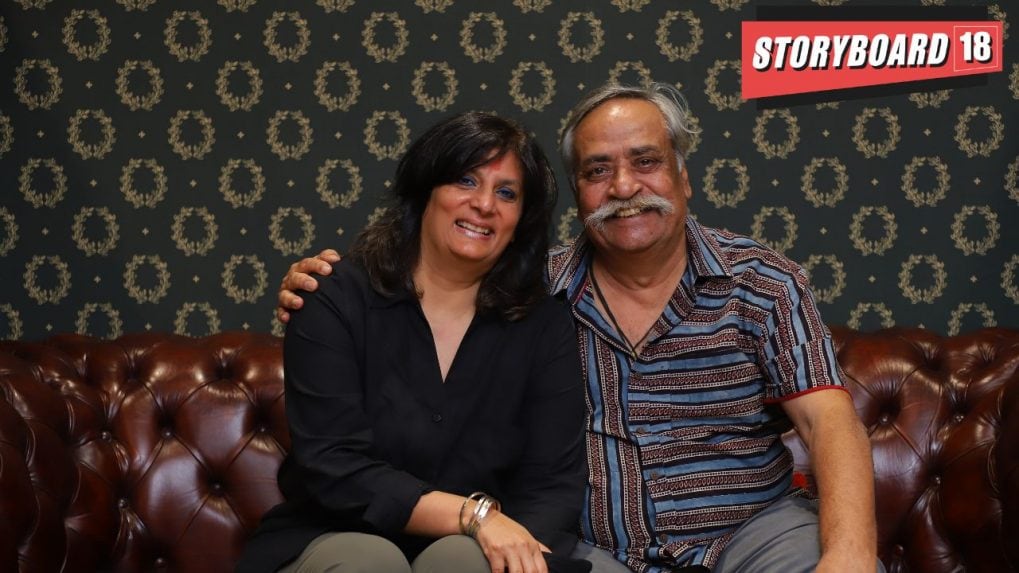How it Works
WPP, Havas, Omnicom: Are advertising’s biggest holdcos recasting agencies as AI Operating Systems?

The advertising world is in mourning following the passing of Piyush Pandey, the towering creative force behind Ogilvy India, whose career spanned more than four decades. Pandey, who joined Ogilvy India in 1982, rose to become Executive Chairman and later served as Chief Creative Officer of the global agency (2019–2021). His work not only transformed Indian advertising but also left an indelible mark on the nation’s cultural landscape.
In a heartfelt statement, Liz Taylor, Global Chief Creative Officer at Ogilvy, said, “A quiet Friday morning brought news that shattered our hearts: the legend, Piyush Pandey, has left us. The void he leaves is immense—a silence where once his booming laughter, humble mentorship, and profound humanity resonated. To Ogilvy, he was our coach, our champion, our spiritual guide, our heart and soul. His passing is a loss that words cannot capture.”
Pandey was often hailed as the “Godfather of Indian Advertising,” yet he preferred to be called the “Minister of Fun” at Ogilvy, reflecting his playful and warm personality. Over the years, he created some of India’s most iconic campaigns—from Cadbury’s cricket ad to Fevicol’s humorous storytelling to Asian Paints’ vibrant narratives. Beyond selling products, his campaigns became cultural touchstones, celebrated for their creativity, humanity, and connection to the audience.
Joe Sciarrotta, Deputy Global Chief Creative Officer, Ogilvy, recalled Pandey’s humility and patriotism: “What many people don’t realize is that Piyush gave India its voice back, after having been so Westernized for so long. His greatest gift was that he treated ordinary people extraordinary, and extraordinary people ordinary. He saw, and celebrated, the humanity in it all. That impact will ripple for generations to come.”
Pandey’s influence extended beyond advertising. He led UNICEF’s polio eradication campaign in India, a project that reached every corner of the country. In 2014, India was declared polio-free—a campaign Pandey described as “my most satisfying campaign.”
Tributes poured in from Ogilvy leaders worldwide. Devika Bulchandani, Chief Operating Officer, WPP, said, “Piyush was not just the most important man in Indian advertising, he was the most important man in so, so, so many of our lives at Ogilvy. His work and legacy will live forever. I am personally heartbroken. I lost my biggest champion.”
Shelly Lazarus, Chairman Emeritus, Ogilvy, reflected, “Piyush Pandey had a giant brain and a giant heart. He commanded the respect of everyone who worked with him. There are few people who are immortal. Piyush Pandey is one of them.”
Hephzibah Pathak, Executive Chairperson, Ogilvy India, added, “A giant of a leader, his fearless heart and unwavering goodness inspired us to see the world, and ourselves, differently. His beautiful philosophy, ‘Kuch khaas hai hum sabhi mein,’ was his very essence—always finding and celebrating the specialness in everyone.”
The Chief Creative Officers of Ogilvy India—Harshad Rajadhyaksha, Kainaz Karmakar, and Sukesh Nayak—shared, “His living room was our second office. From the day we joined Ogilvy, to this day, he was our Creative Director and we were his team. Even if he can’t hear us present ideas anymore, every time we create something, we will be asking ourselves, ‘Will Piyush like this?’”
Reed Collins, Chief Creative Officer, Ogilvy APAC, summed up the sentiment: “Our hearts are stilled, for a legend has departed. Piyush Pandey didn't just shape culture; he shaped us. We mourn his absence, yet rise with fierce gratitude, committed to carrying his bat, forever building on the extraordinary innings he so brilliantly played.”
Piyush Pandey’s legacy is not just in the awards he won or the campaigns he led, but in the countless creatives he inspired, the culture he shaped, and the lives he touched. As Ogilvy and the advertising world grieve, they celebrate a life that exemplified creativity, humanity, and joy.
From purpose-driven work and narrative-rich brand films to AI-enabled ideas and creator-led collaborations, the awards reflect the full spectrum of modern creativity.
Read MorePraveen Someshwar, Managing Director and CEO of Diageo India, joins the Grand Jury of the Storyboard18 Awards for Creativity, highlighting the awards’ focus on work that blends cultural relevance with strategic and commercial impact.